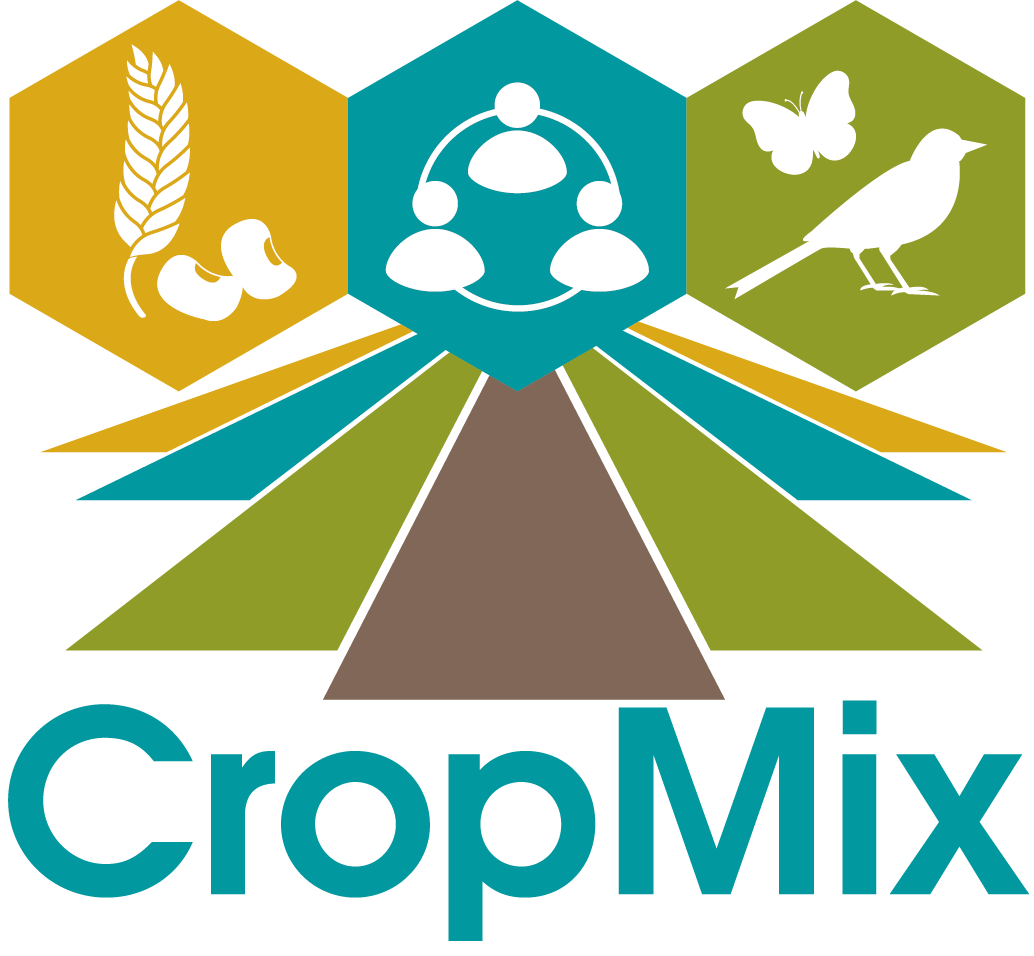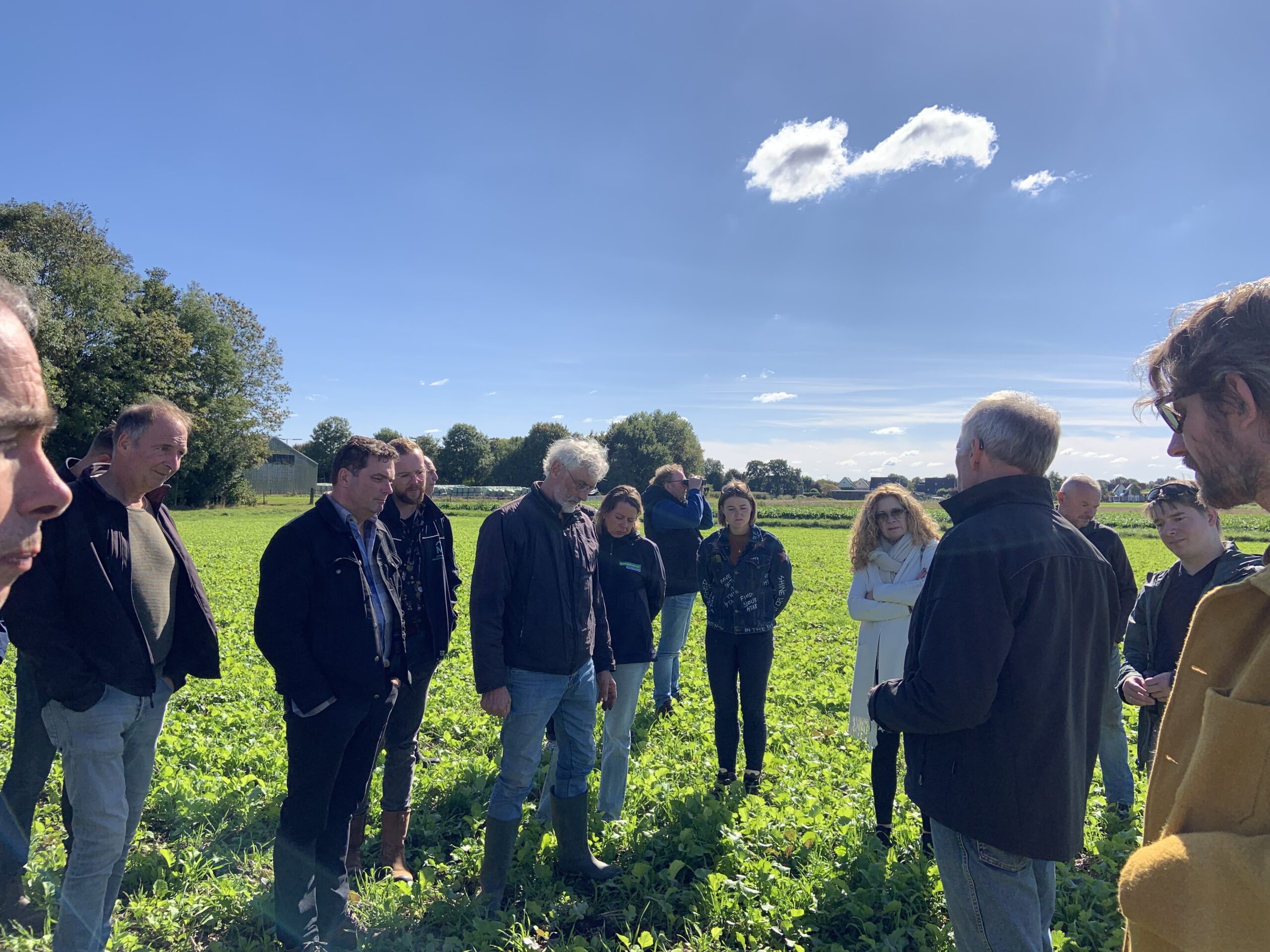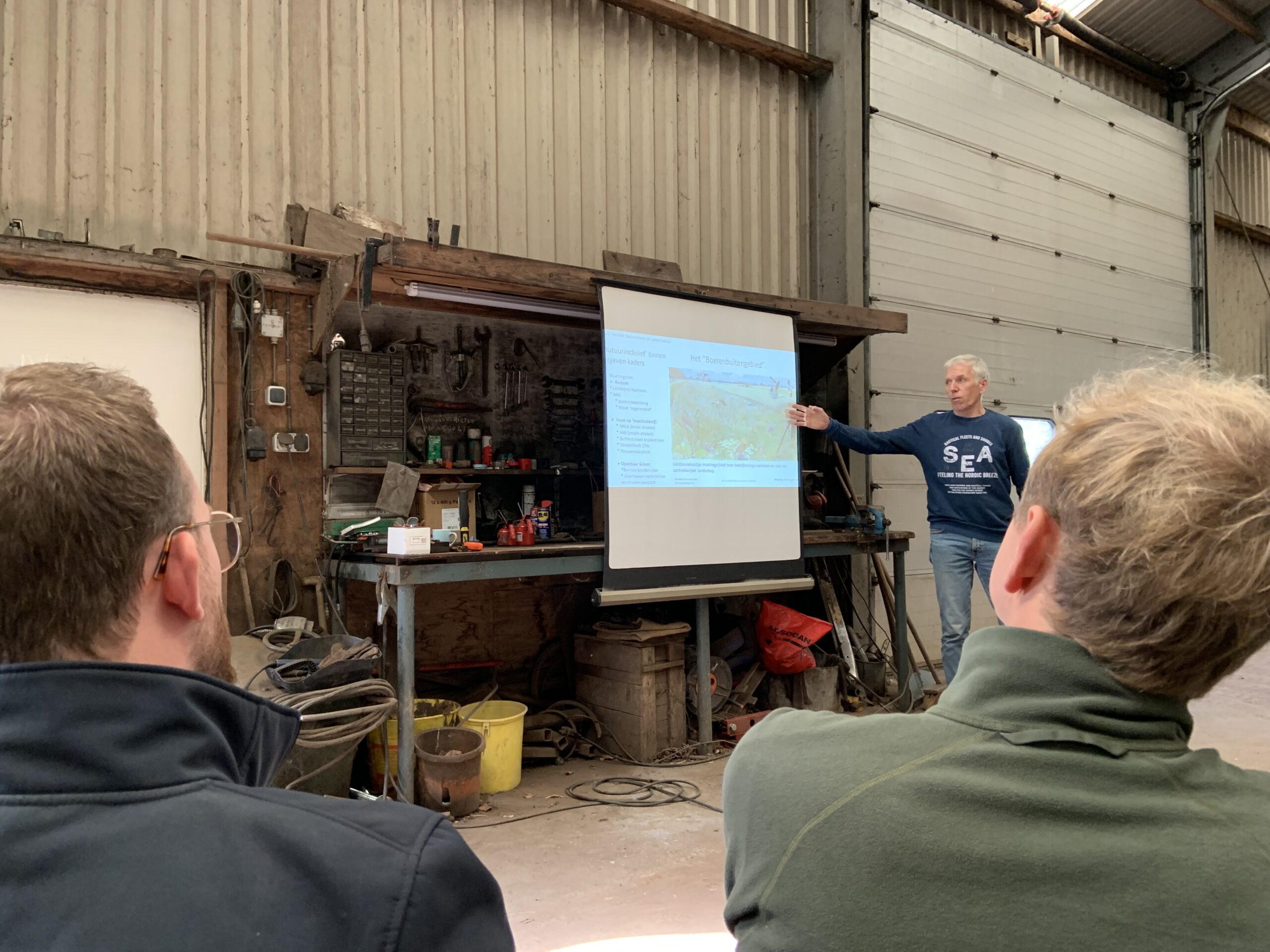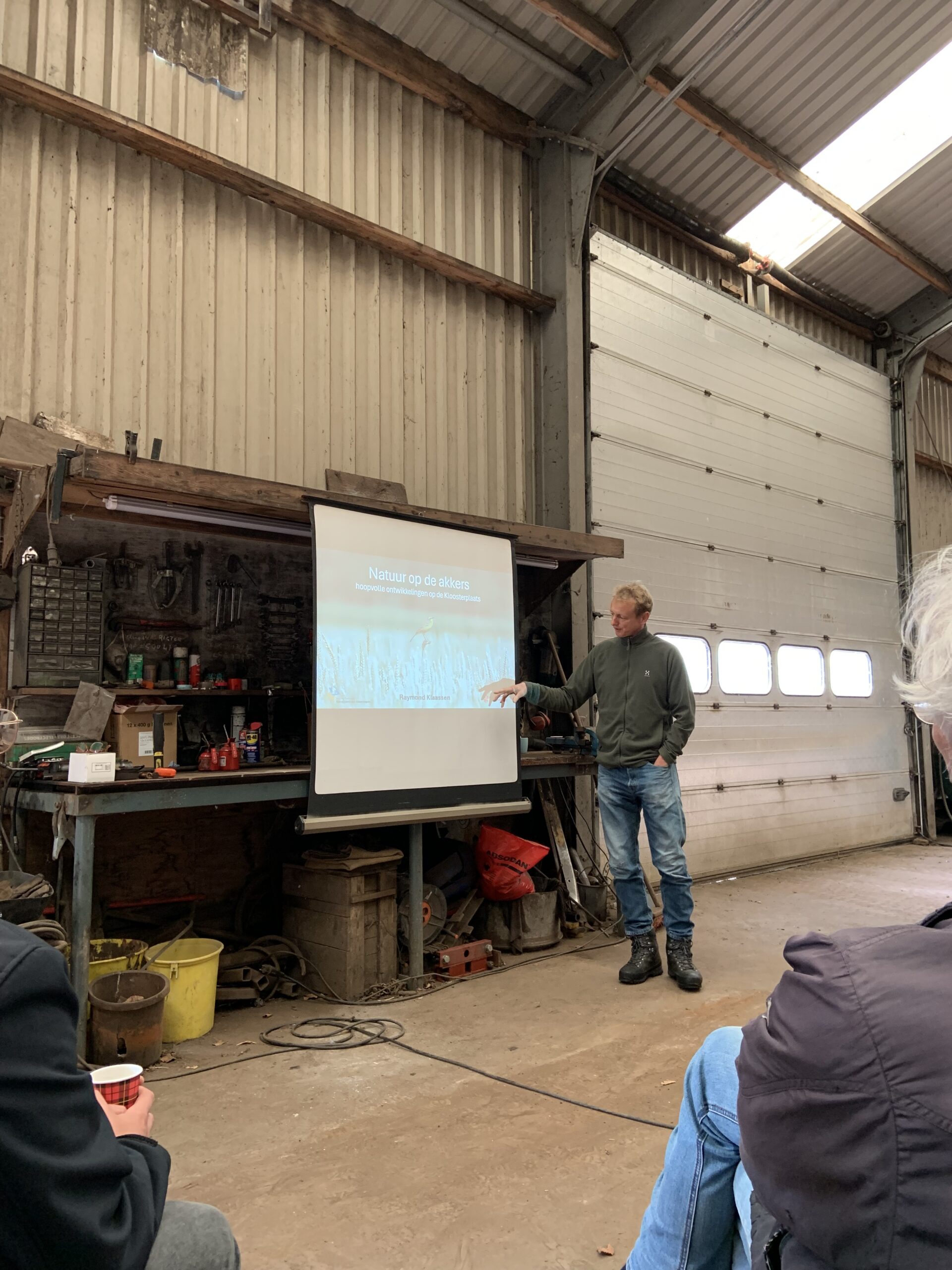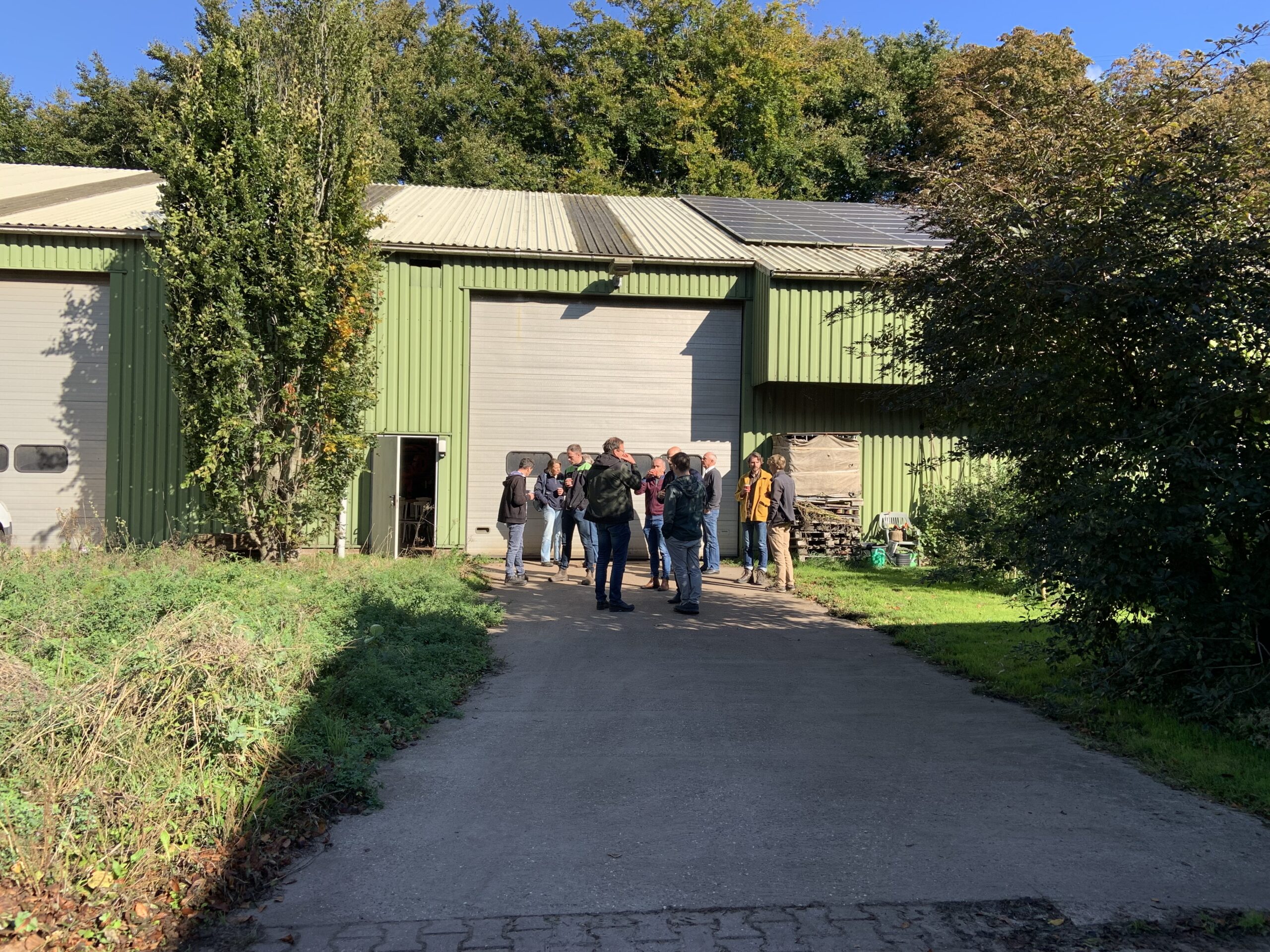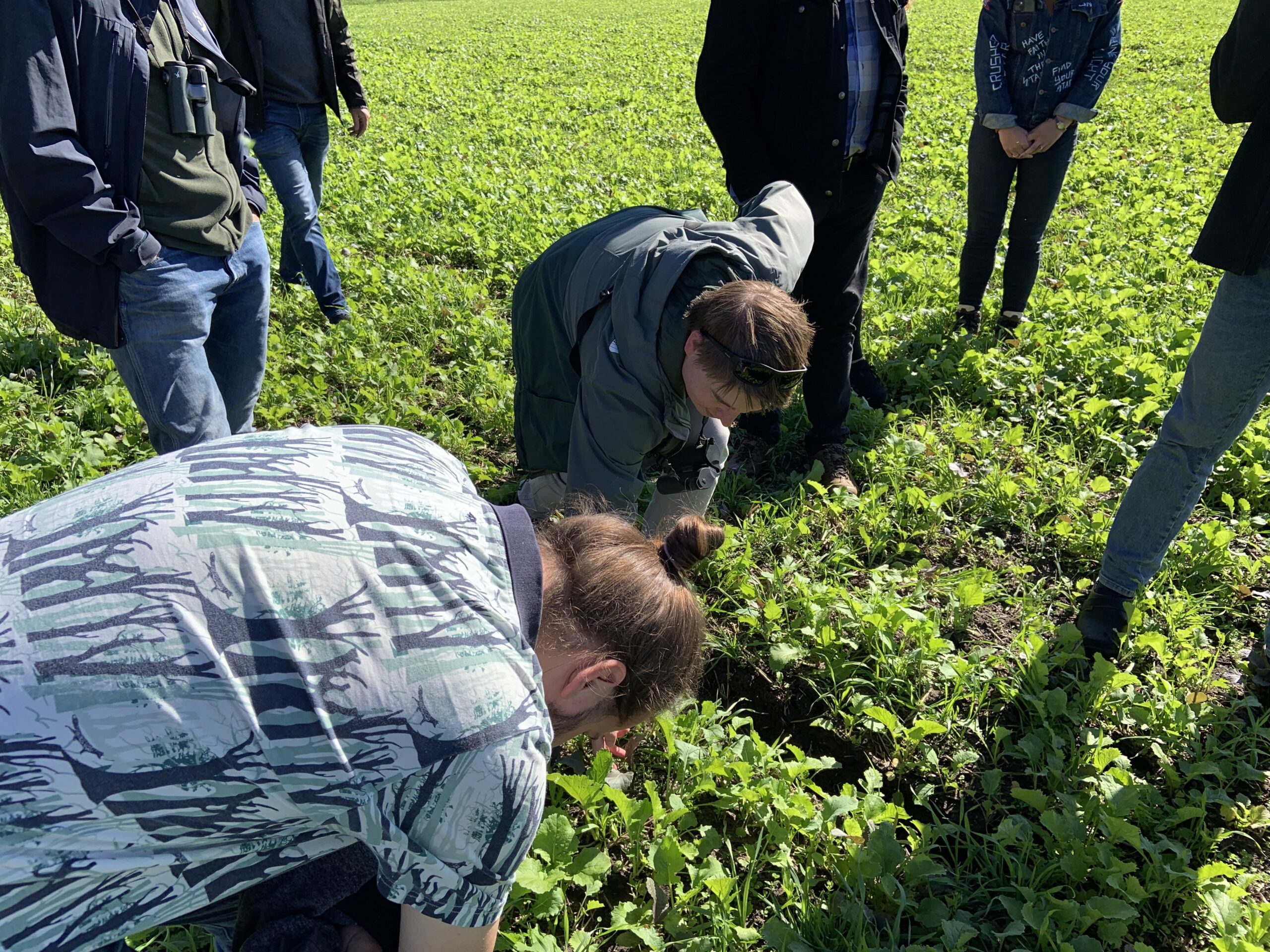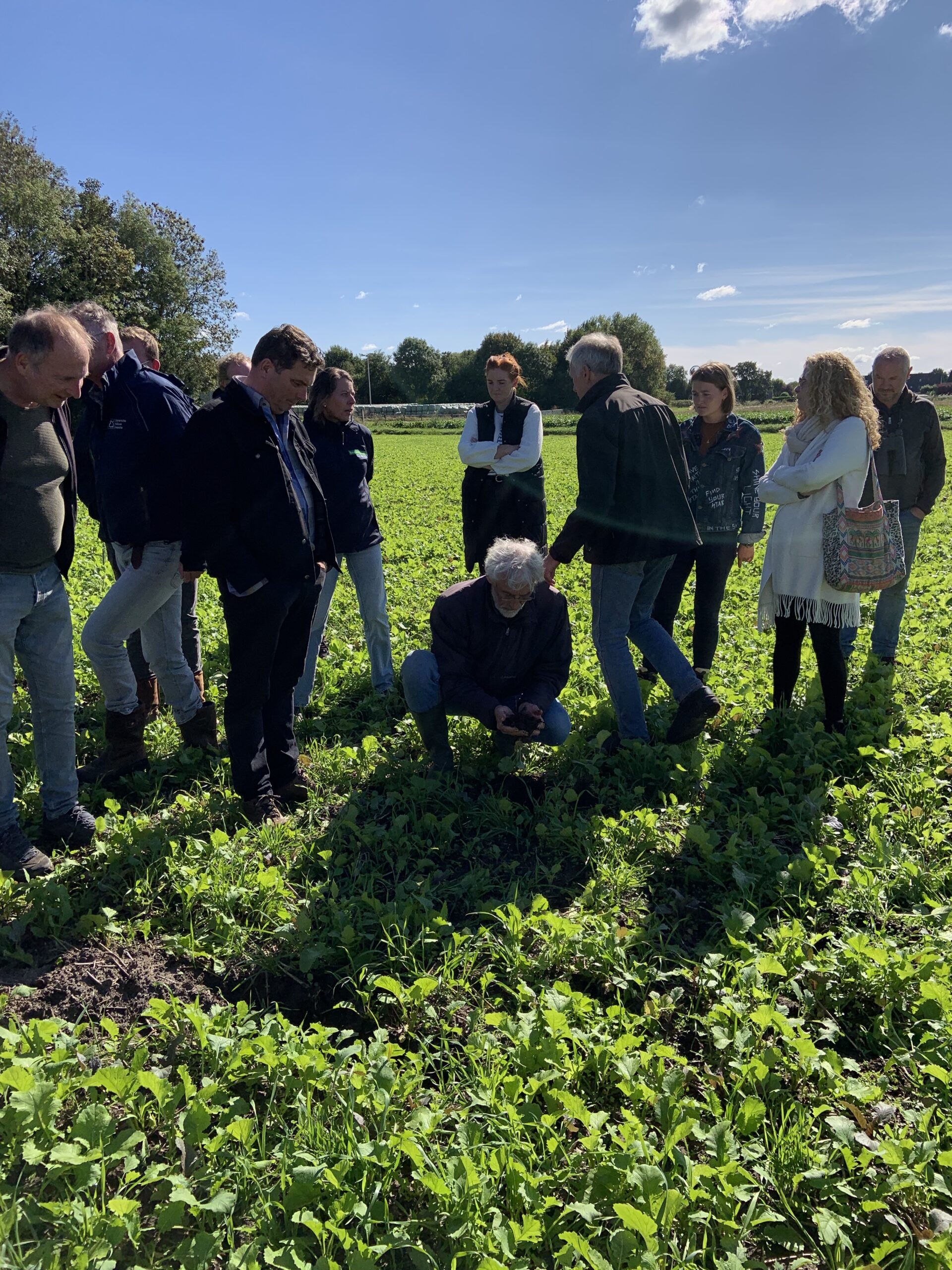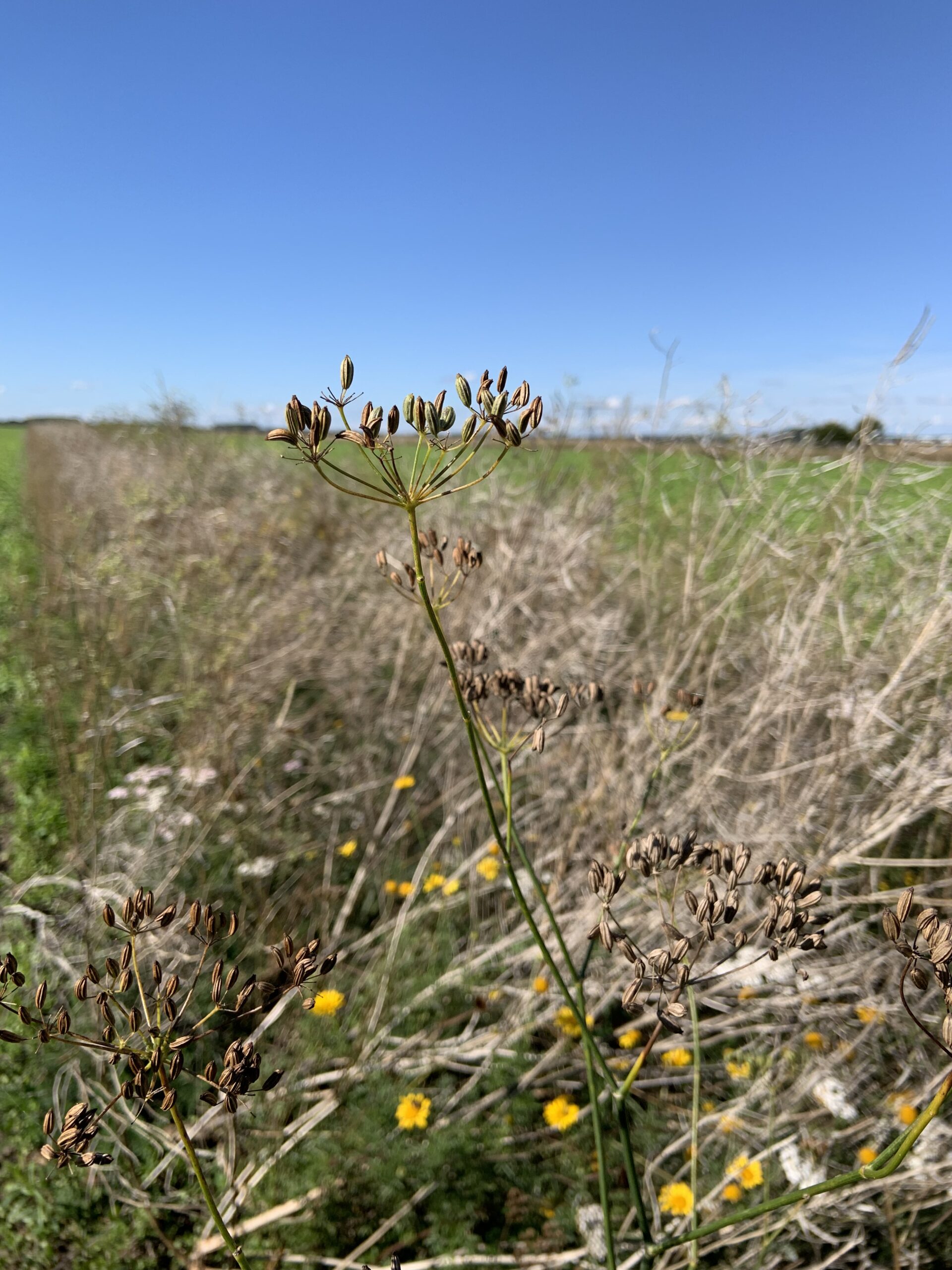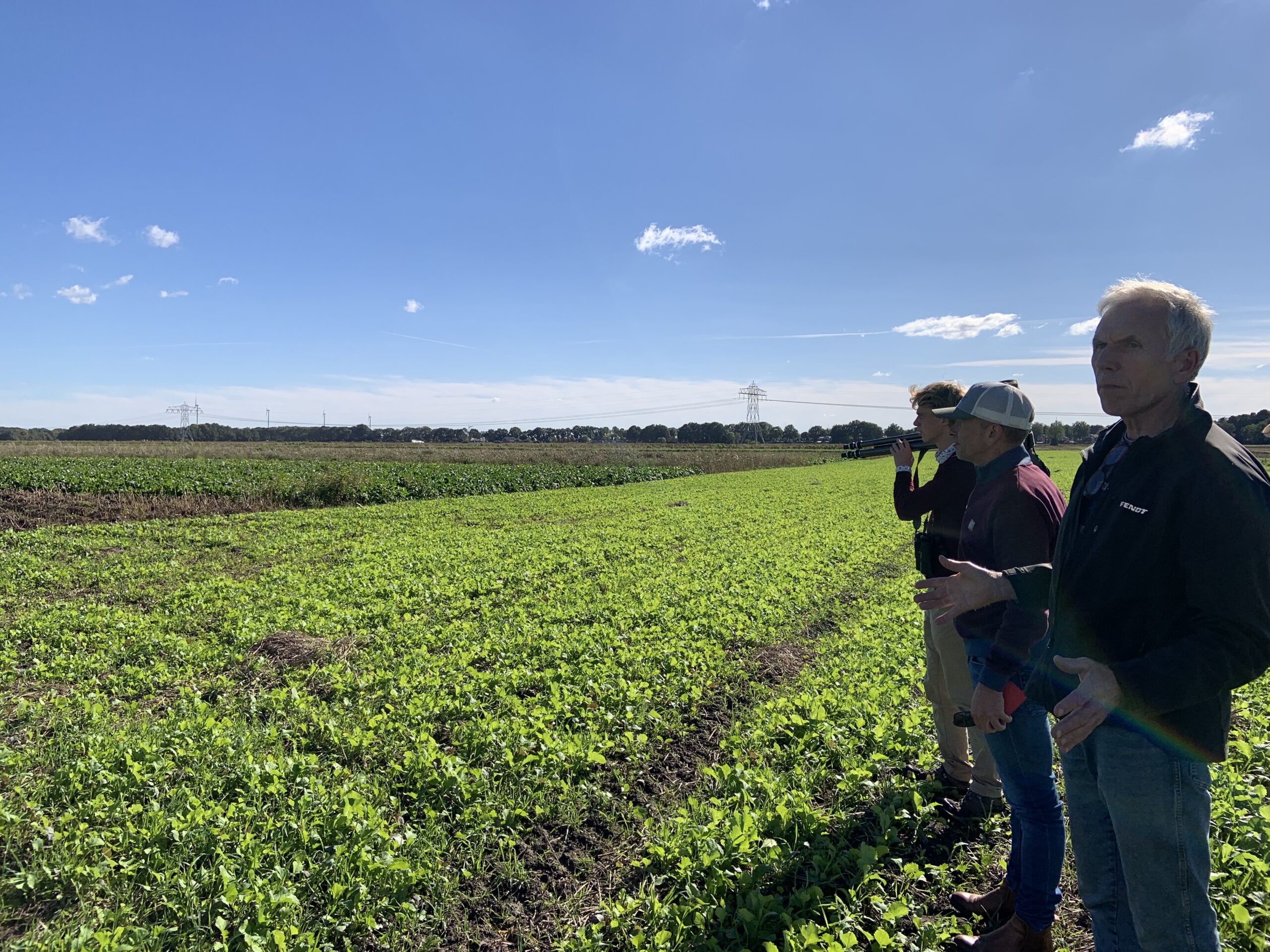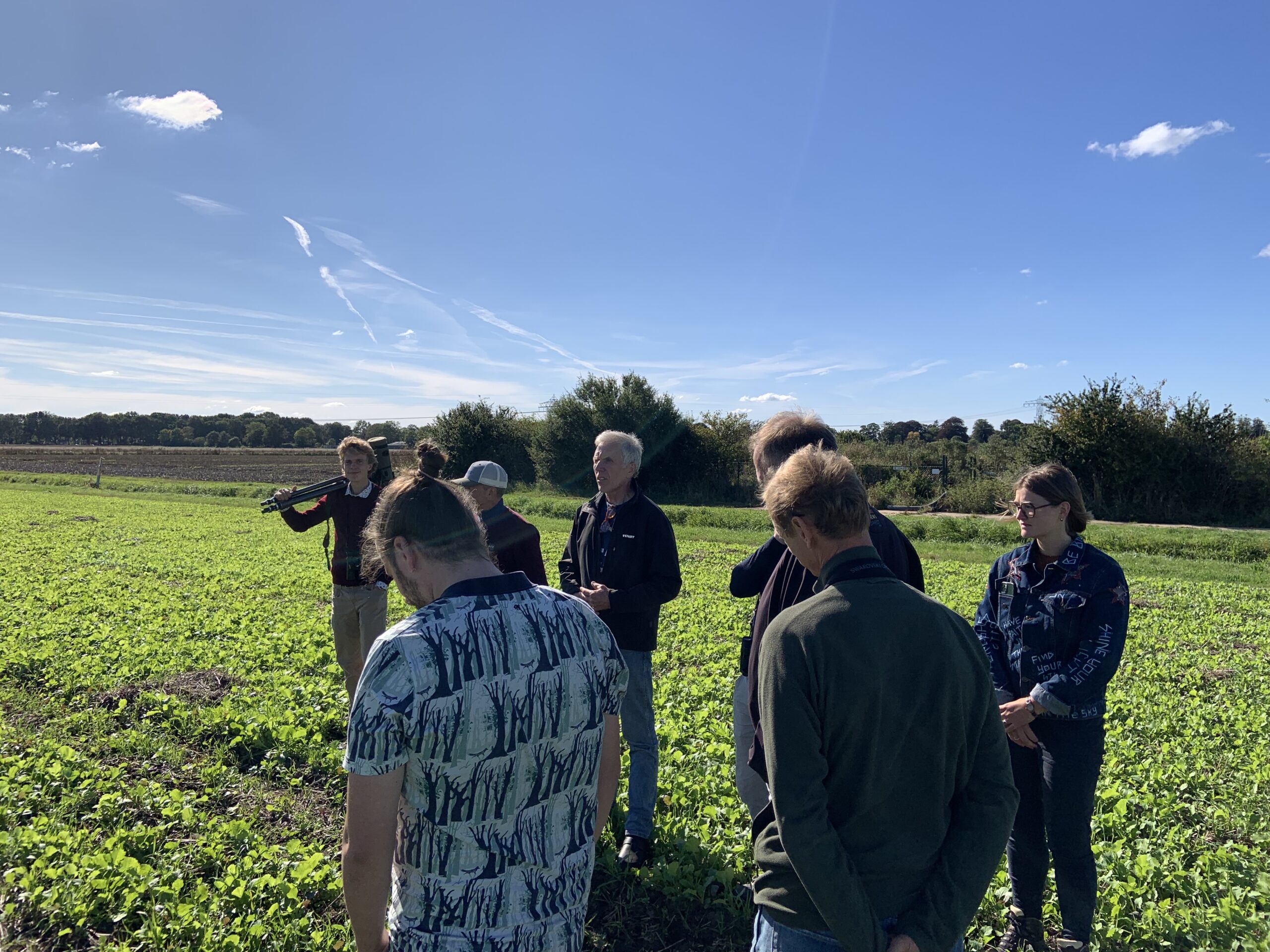On Wednesday 24 September, we organised a themed meeting on nature-inclusive arable farming. The setting was the farm of Peter Harry Mulder and his partner Eline in Muntendam (Groningen). Peter Harry explained how, as a conventional arable farmer, he constantly strives to promote nature on and around his fields. He sees the benefits of improving nature on conventional arable land, which still accounts for the majority of the total acreage. Over the years, he has experimented with all kinds of ways to make his fields, which are planted with traditional potatoes, beets and cereals, as nature-inclusive as possible.
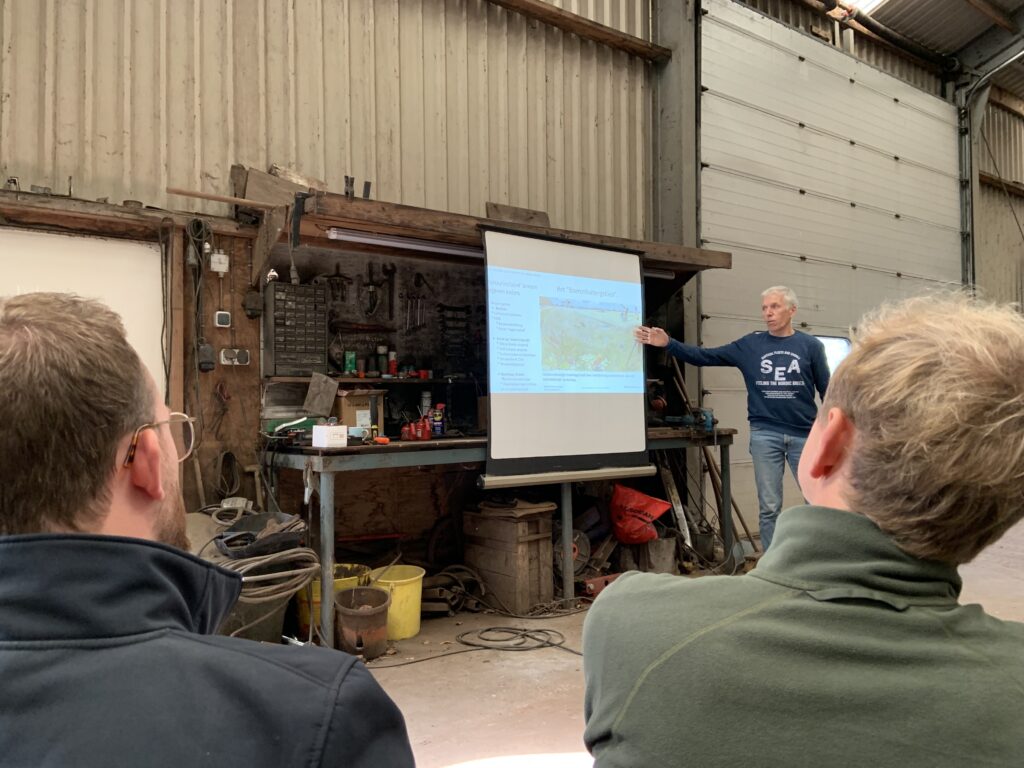
At his farm, Kloosterplaats, Peter Harry is taking various measures to restore farmland nature. With higher soil and plant resilience, he aims to reduce pesticide use, increase soil life, reduce nitrogen leaching, and create a richer and more pleasant landscape with more farmland nature. Birds are particularly close to his heart. Many (endangered) species of farmland birds, such as the linnet, yellowhammer, yellow wagtail, partridge, and harrier and marsh harrier, are visibly benefiting from his approach to farming.
Researcher Raymond Klaassen agrees. Peter Harry's policy is resulting in more farmland birds and insects – a food source for birds. However, he warns that simply planting flower strips to attract insects is not enough if we do not also consider places where birds can breed.
Researcher Luuk Croijmans also demonstrated the effects that crop diversity, particularly strip cropping, can have on biodiversity in conventional arable farming. The research is based on a monitoring network of potato and cereal fields, of which Peter Harry is a part. In strip cropping, the number of insects increases, with natural enemies (fortunately!) increasing much more than pest insects.
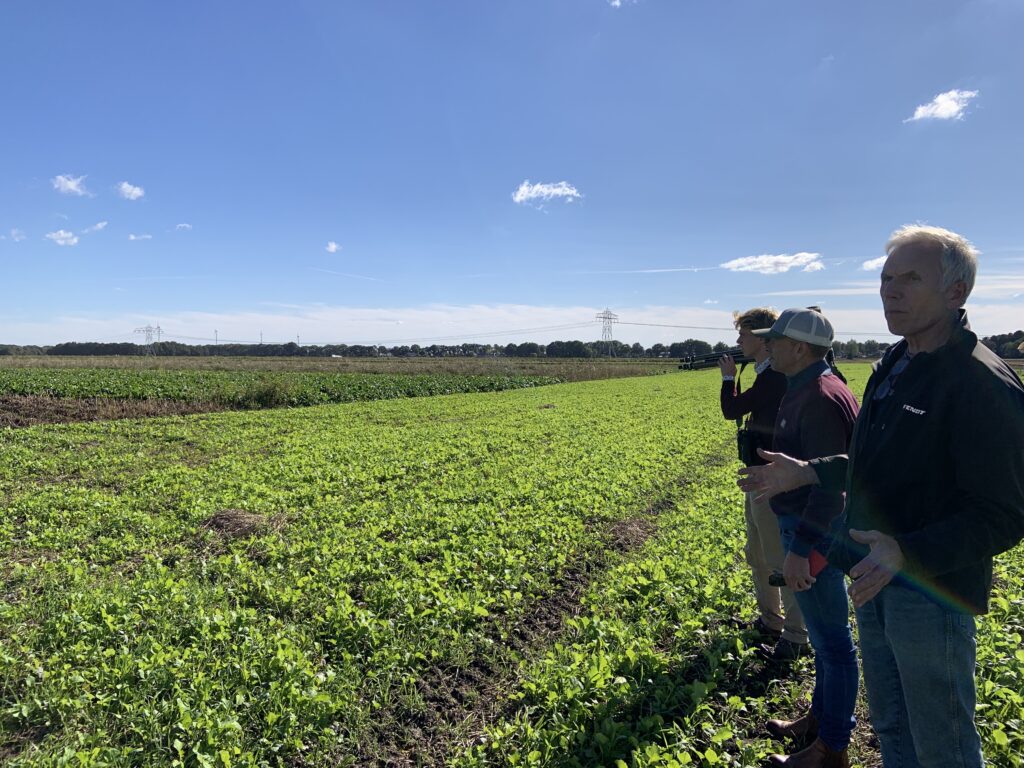
We ended the day with a tour, during which there was lively discussion, including about who could continue Peter Harry's work when he retires. Although he does not want to stop for the time being and wants to inspire even more farmers.
Once again, thank you to all the participants and to Peter Harry and Eline for the warm welcome!
